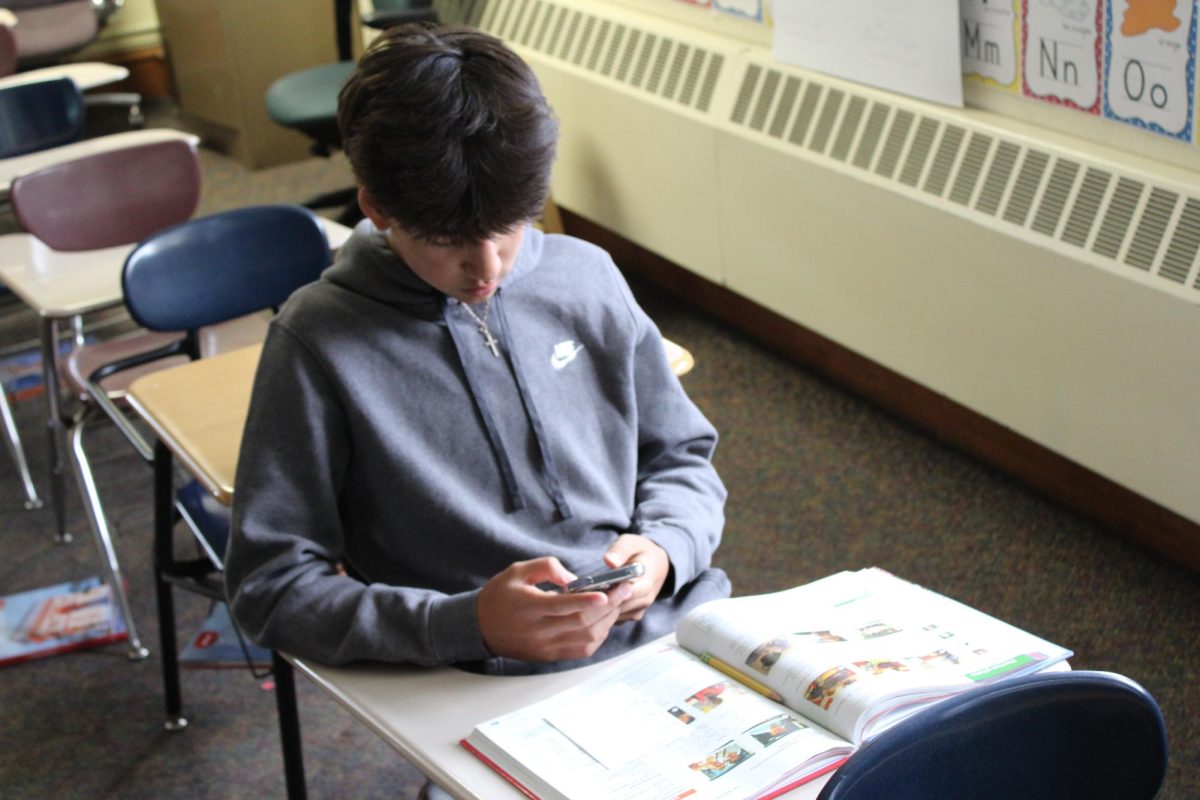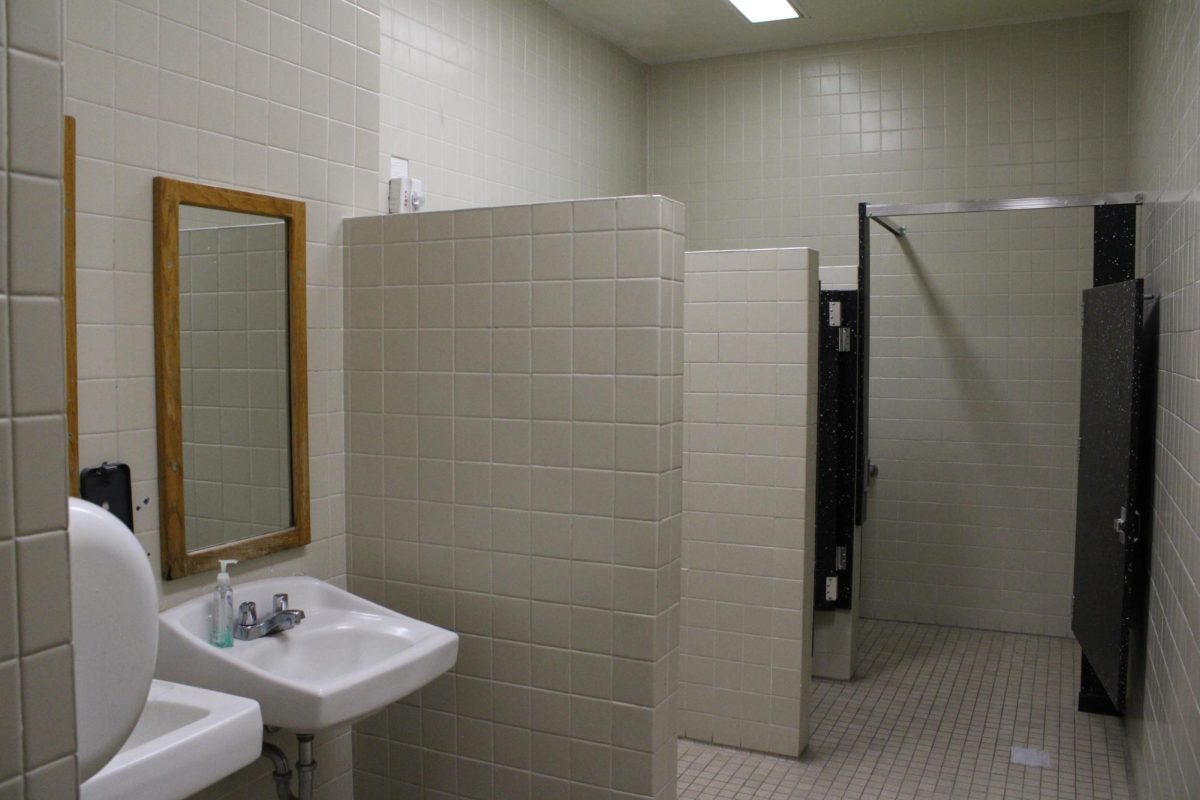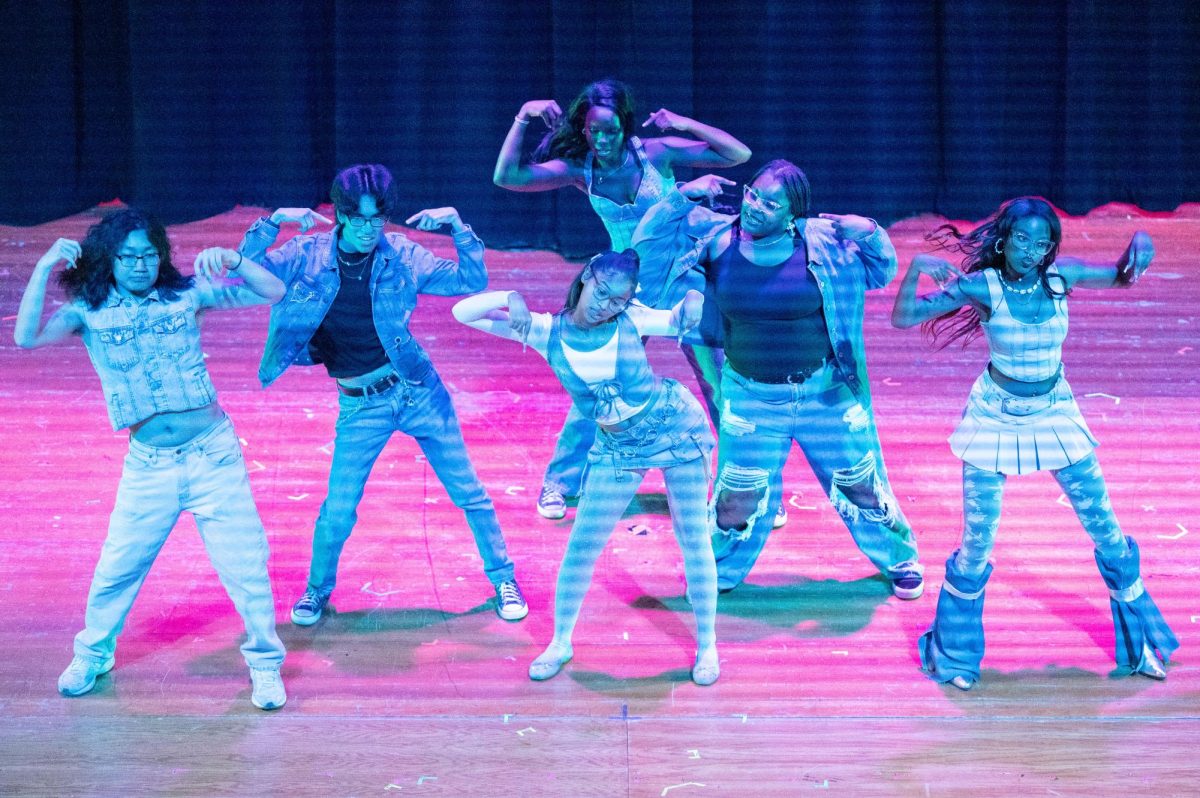There may not be a bigger movie produced in 2024 in terms of narrative, visual scope and box office performance than “Dune: Part Two.” Director and writer Denis Villeneuve returns to the outlandish science fiction series with the second installment of the blockbuster series.
Villeneuve is no stranger to the genre, having previously directed 2016’s “Arrival” and 2017’s “Blade Runner 2043.” Despite these movies themselves having mass acclaim, “Dune: Part Two” seems as though it could be Villeneuve’s best outing so far.
The movie continues the story of the first film. The plot revolves around a desert planet far in the future called Arrakis, where a house of nobles called the Harkonnens colludes with the emperor of the galaxy to take the resources out of the hands of another noble house, the Atreides. Despite the efforts of the Harkonnens, Paul Atreides and his mother, Jessica, escape into the desert, where they utilize and manipulate a prophecy held by the native people to lead them back to noble status.
I struggle to find many flaws in “Dune: Part Two.”
Some criticism exists against Timothée Chalamet for some of his recent role choices. If you were viewing “Dune: Part Two” preceding his starring role in “Wonka,” you may have a hard time taking him seriously. Any doubts about his ability to perform in the role of Atreides are extinguished upon viewing. Understanding the protagonist’s motivations and intentions in his actions requires nearly no extraneous thought. His speech to the Fremen to convince them of the truth of their prophecy that he is their chosen is chilling and perhaps one of the most unforgettable moments of the film. Chalamet’s passion and intensity go unmatched throughout the film, and he absolutely sticks out in the film’s setting as a leader.
Having had such a large cast, all of whom performed spectacularly in their roles, it would be difficult to cover every performance, but two that stand out are Zendaya as Chani and the Harkonnen family. Along with Chalamet, Zendaya reaches levels she has not quite hit before in “Dune: Part Two.” Her development throughout the film, going from doubtful of Paul to supposedly in love with him to realizing his betrayal, is very well done. Empathizing with Chani is vital to engaging with the story and furthering the underlying meaning of Paul’s treatment of the Fremen. Without Zendaya’s emotional performance as Chani, it would not be emphasized enough that what Paul is doing to the Fremen is immoral. She serves as the point of view of rationality, the only person among the Fremen who truly knows Paul and perceives his actions as manipulative.
Stellan Skarsgård continues to impose his will upon the people of both Arrakis and the theater as the sadistic Baron Harkonnen, developing his rule over the planet with his brutish nephew Rabban, played by Dave Bautista. What really ties the maniacal family together, though, is Austin Butler as Feyd-Rautha. Butler’s portrayal works very well in both developing him as a ruthless threat to Paul and showing the power dynamic of the Harkonnens. He bursts into the film, quickly showing why he is relevant through his fighting in the arena and humiliation of Rabban.
“Dune: Part Two” may be one of the most visually compelling movies in recent memory. The environments are expertly created. The scale of the structures is intimidating; the design choices are perfect for a human-centric society that has expanded into an intergalactic setting. The depiction of their technology works very well in showing that these are people who have reached a sort of scientific peak.
This establishment supports the morals of the story. The noble houses live spectacularly with technology that gives them control of nearly every aspect of life. On the other hand, the Fremen live in isolation and base their lives upon the preservation of water, since they do not even have access to that. The involvement of the Fremen in the noble houses conflict is an excellent parallel to how, in reality, world powers wage war against each other at the cost of those who are merely trying to survive with what they are given by those powers.
“Dune: Part Two” is an adaptation of the novel “Dune” by Frank Herbert, specifically the second half. It works well as a cinematic version of the story overall, with some issues. The best change from the books is Chani’s characterization. In the novel, she is not nearly as opposed to Paul’s treatment of the Fremen as she is in the film. She is far more developed as someone concerned for the fate of her people rather than someone who is equally as manipulated as everyone else in the novel. In the novel, she becomes Paul’s concubine, a fate she thankfully avoids in the film.
Some plot points are introduced, though they are not necessary, such as Paul’s relations to the Harkonnens, which is barely discussed among the characters and has no plot significance besides two inconsequential lines in the climax of the film. The worst change may be the forced inclusion of Paul’s sister. In the novel, she is far more of a character that drives the other’s decisions and motives, affecting the plot through her ideas and relationship with Paul. While the idea of having an intelligent infant that speaks to its mother in the womb is unique and interesting, she just never has anything significant or important to say. It should have been further developed, or otherwise completely excluded.


















Haylon Sipe • Mar 29, 2024 at 4:10 pm
I completely agree. This is actually exactly what I was thinking.